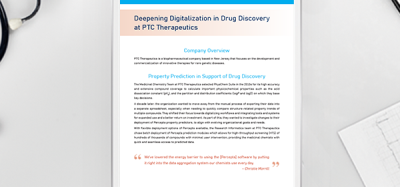Analysis reveals “superior efficacy” of long-acting injectable HIV treatment
Posted: 23 February 2024 | Catherine Eckford (European Pharmaceutical Review) | No comments yet
The Cabenuva (cabotegravir + rilpivirine) injectable regime could benefit individuals with HIV who have challenges adhering to treatment, Phase III interim analysis suggests.


An interim analysis of a Phase III trial has demonstrated superior efficacy of the long-acting injectable antiretroviral treatment (ART) for HIV, Cabenuva (cabotegravir + rilpivirine), for HIV patients with a history of ART adherence challenges.
“The interim data indicating the superiority of long-acting therapy compared to daily oral therapy in individuals who have difficulty taking pills for HIV every day is a remarkable outcome,” shared Dr Kimberly Smith, MPH, Head of R&D at ViiV Healthcare. “the LATITUDE study shows cabotegravir and rilpivirine injectable treatment can help them keep their virus suppressed, which benefits their overall health. Optimising therapy for all people living with HIV, including those with adherence challenges, is critical to the effort to end the HIV epidemic.”
About the long-acting injectable treatment Cabenuva (cabotegravir + rilpivirine)
According to ViiV Healthcare, the complete long-acting injectable regime combines the integrase strand transfer inhibitor (INSTI) cabotegravir, developed by ViiV Healthcare, with rilpivirine, a non-nucleoside reverse transcriptase inhibitor (NNRTI) developed by Janssen Sciences Ireland Unlimited Company.
The company explained that INSTIs work by inhibiting HIV replication by stopping viral DNA from integrating into the genetic material of T-cells. Rilpivirine is an NNRTI that interfers with reverse transcriptase, preventing the virus from multiplying.
What did the Phase III HIV study find?
In ViiV Healthcare’s LATITUDE (Long-Acting Therapy to Improve Treatment Success in Daily Life) ongoing study, to attain viral suppression, participants received adherence support alongside taking the three-drug regime oral ART, including dolutegravir and bictegravir-based regimes.
Patients were then randomised to receive long-acting injectable ART (cabotegravir + rilpivirine) every four weeks or to continue taking daily oral ART. ViiV Healthcare confirmed.
In an interim review, investigators deemed that the current study evidence showed that long-acting ART compared to daily oral standard of care, had “superior efficacy”. As a result, all eligible participants were recommended to be given the option of long-acting injectable cabotegravir + rilpivirine instead of the daily oral therapy.
The full data set from the interim analysis will be presented at an upcoming conference, ViiV Healthcare stated.
Related topics
Big Pharma, Biopharmaceuticals, Clinical Development, Clinical Trials, Drug Safety, Formulation, Industry Insight, Research & Development (R&D), Therapeutics









